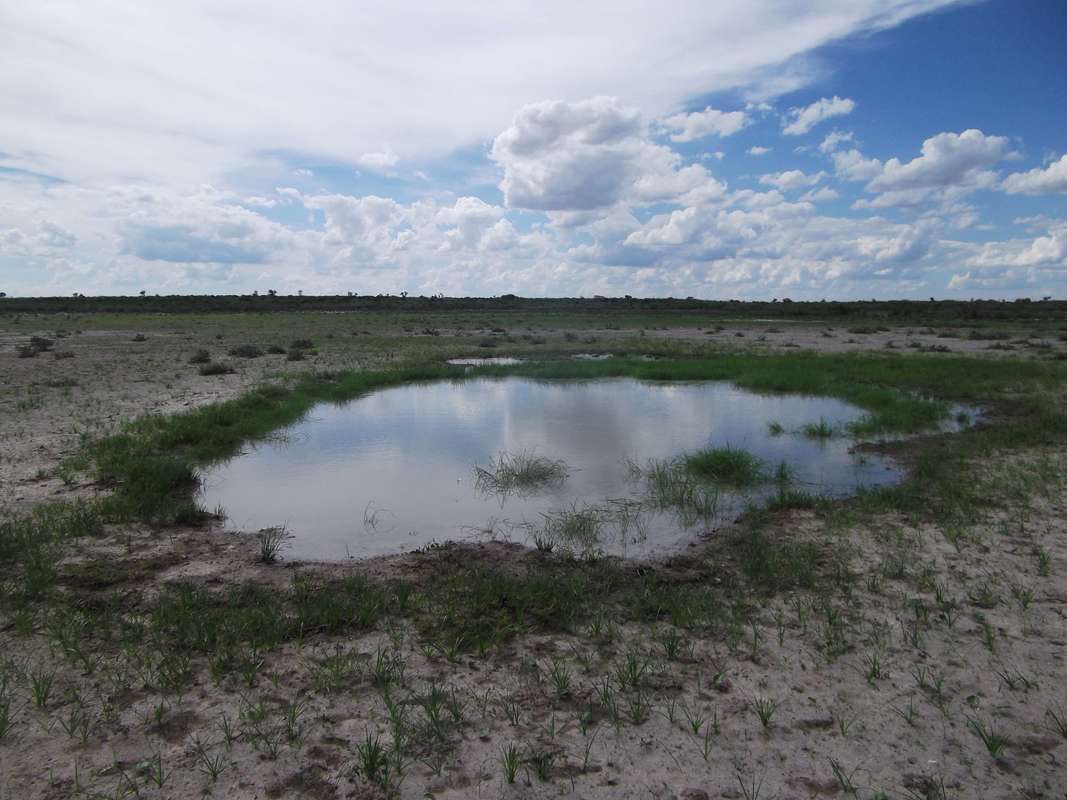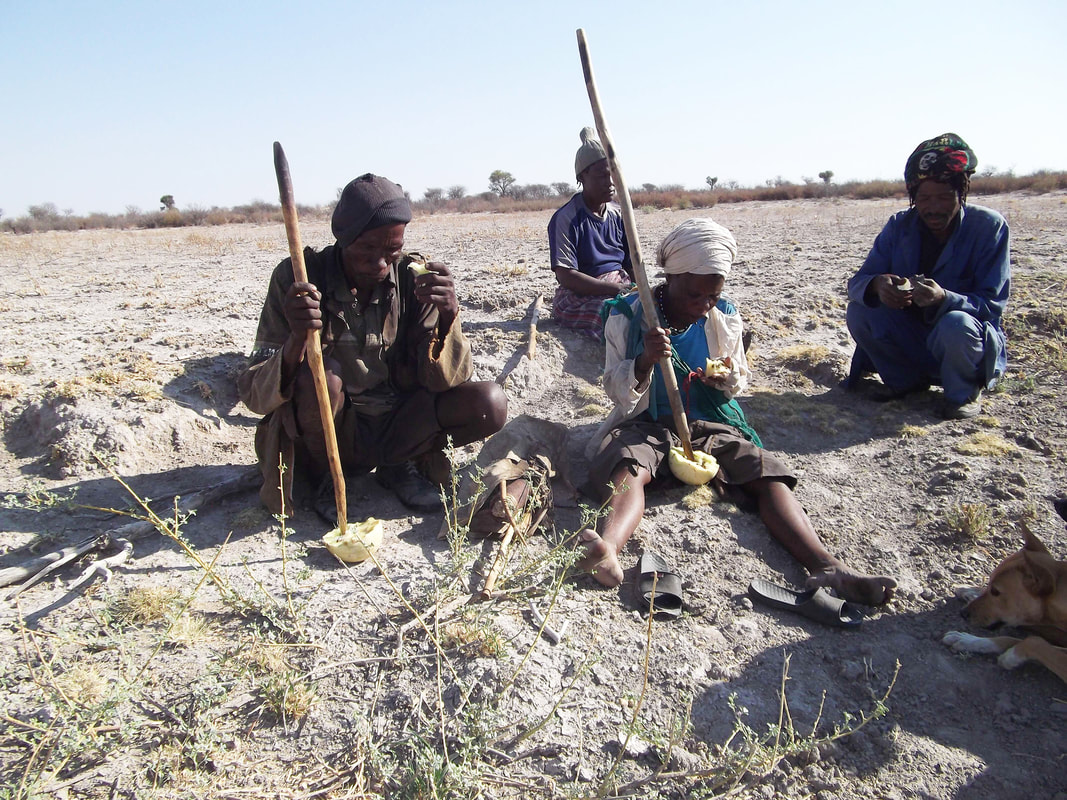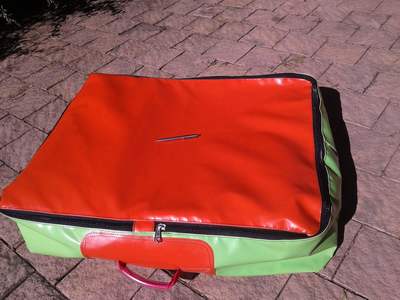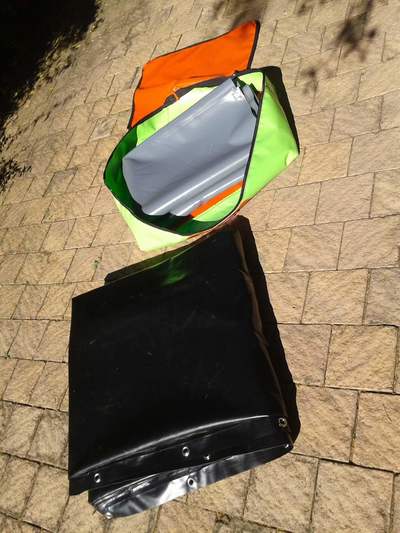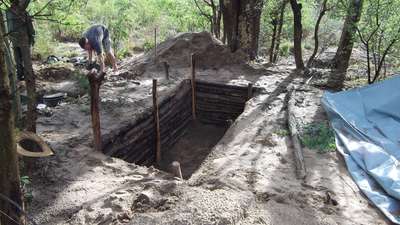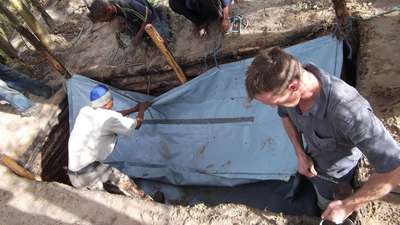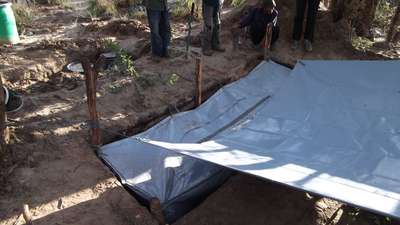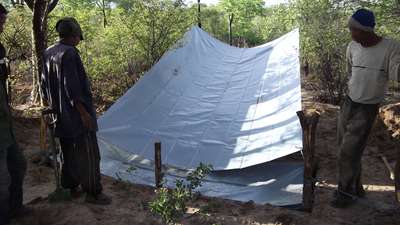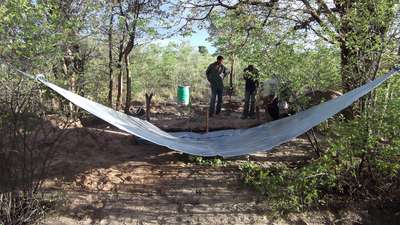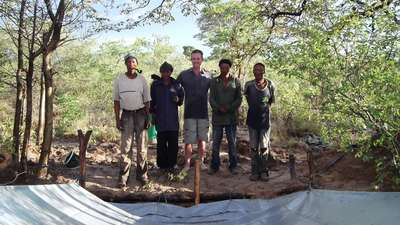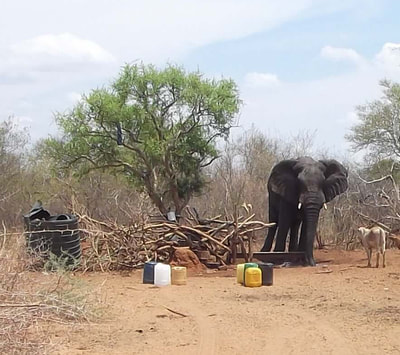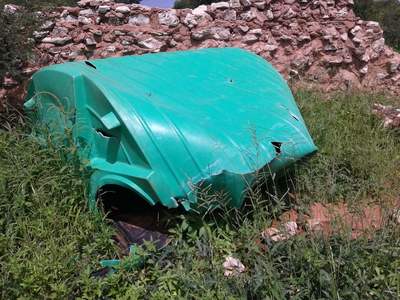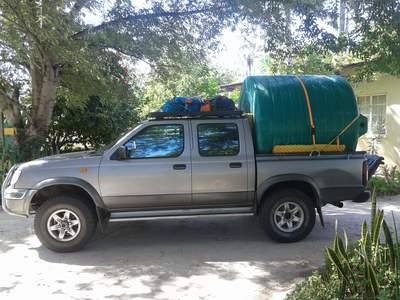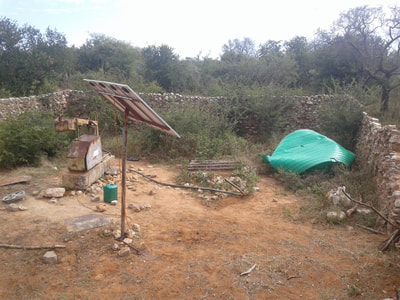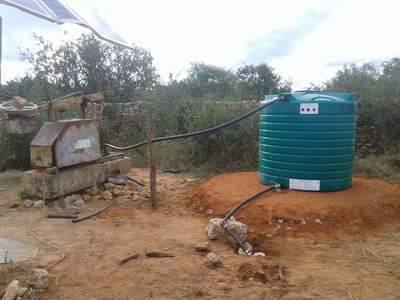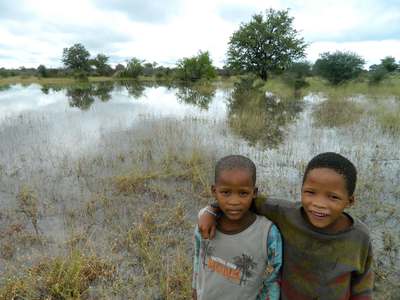The Kalahari semi-desert is mostly devoid of any permanent surface water and its sandy soils hold rainwater only temporarily - a few weeks at most - at isolated pans separated by long distances. Before the advent of boreholes tapping into fossil ground aquifers, the Kalahari's original inhabitants adapted by quickly harvesting rainwater before it evaporated, and by extracting water from hollow trees and moisture-rich melons and tubers. These traditional techniques are still practiced in remote areas such as the Central Kalahari Game Reserve and Western Ngamiland.
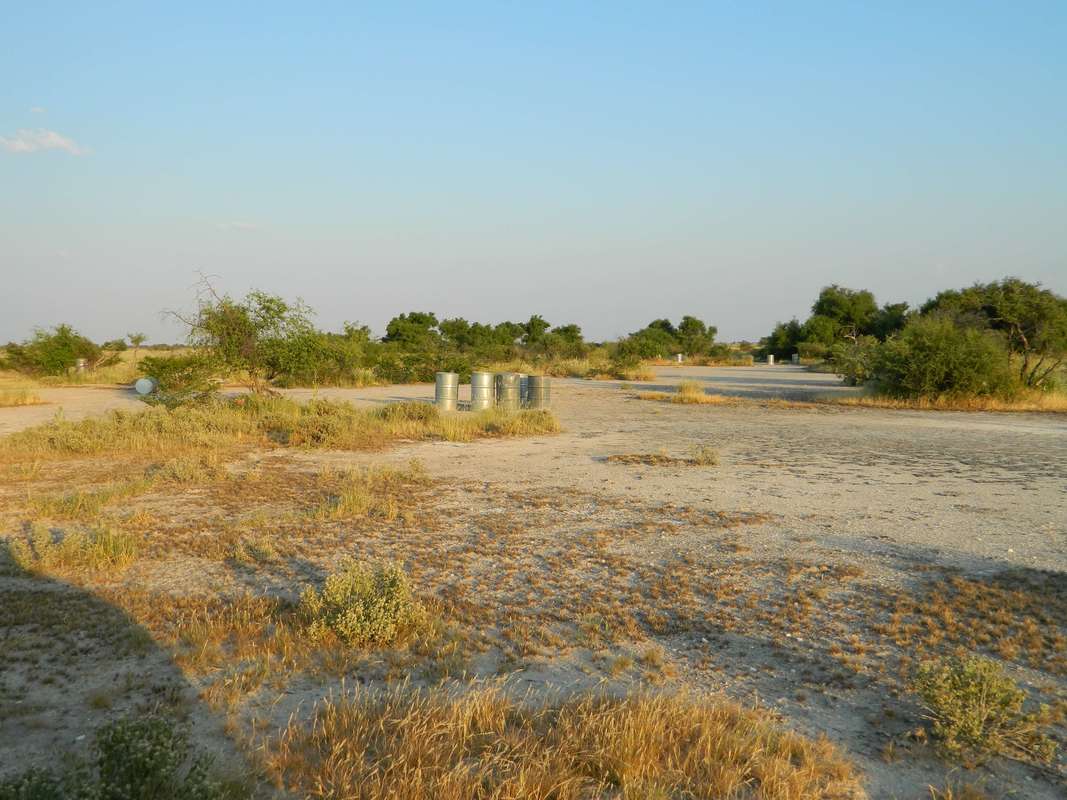
In the Central Kalahari, communities quickly transfer rainwater from pans into drums during the brief rainy season, thereby protecting water from evaporation so it can be used during the 8 to 9 month dry season. It is however an extremely labour intensive process and transportation back to where people live is challenging.
The scarcity of non-saline ground water aquifers and the high cost of developing and maintaining boreholes, can limit rural community access to reliable supplies of clean drinking water. Boreholes in the Kalahari are often inadequate in yield and may be subject to frequent breakdowns, especially in remote areas far from service centres. Competition with livestock, health risks from multiple users, and long travel distances to and from surrounding community homesteads, are some of the challenges facing communities dependent on boreholes.
In order to overcome similar challenges affecting one of our community tourism project areas in Western Ngamiland - an area with poor groundwater - we invented a unique device capable of efficiently and safely capturing and storing up to 5,000L of rainwater. The Portable Rainwater Harvester (PRH) requires no special skills or tools to install, operate and maintain it, and its portability means it can be easily transported and set-up wherever it is needed. We plan to manufacture and supply many more of these devices to vulnerable water-stressed communities, to help secure reliable supplies of clean drinking water at a household level and help minimize the risks and burdens related to borehole water dependency.
NEW FUNDING APPEAL:
We are urgently seeking sponsorship for the manufacturing and installation of ten 2,500 litre capacity Portable Rainwater Harvesters in time for the next rainy season, which starts in November 2018: these units will help to ensure a reliable and readily-accessible clean drinking water supply for at least 110 people in remote localities in North-West District and the Central Kalahari where access to boreholes is problematic or challenging. This is our second funding appeal, following our first ever sponsorship (by Comanis Foundation) in February 2018 of ten PRH units, which have been manufactured and are due to be installed in target community areas later this year.
In order to overcome similar challenges affecting one of our community tourism project areas in Western Ngamiland - an area with poor groundwater - we invented a unique device capable of efficiently and safely capturing and storing up to 5,000L of rainwater. The Portable Rainwater Harvester (PRH) requires no special skills or tools to install, operate and maintain it, and its portability means it can be easily transported and set-up wherever it is needed. We plan to manufacture and supply many more of these devices to vulnerable water-stressed communities, to help secure reliable supplies of clean drinking water at a household level and help minimize the risks and burdens related to borehole water dependency.
NEW FUNDING APPEAL:
We are urgently seeking sponsorship for the manufacturing and installation of ten 2,500 litre capacity Portable Rainwater Harvesters in time for the next rainy season, which starts in November 2018: these units will help to ensure a reliable and readily-accessible clean drinking water supply for at least 110 people in remote localities in North-West District and the Central Kalahari where access to boreholes is problematic or challenging. This is our second funding appeal, following our first ever sponsorship (by Comanis Foundation) in February 2018 of ten PRH units, which have been manufactured and are due to be installed in target community areas later this year.
Repairs and maintenance to existing community boreholes is a constant challenge. The Kalahari Peoples Fund kindly donated funds at short notice for purchasing a 1500 L water tank to replace one damaged by elephants in 2016, which was installed by the KWT in May 2017.
Further funding is required to undertake urgently needed upgrades to old borehole systems such as the one shown in the photos below.
To find out how you can donate towards borehole repairs, kindly contact us by email.
Further funding is required to undertake urgently needed upgrades to old borehole systems such as the one shown in the photos below.
To find out how you can donate towards borehole repairs, kindly contact us by email.
